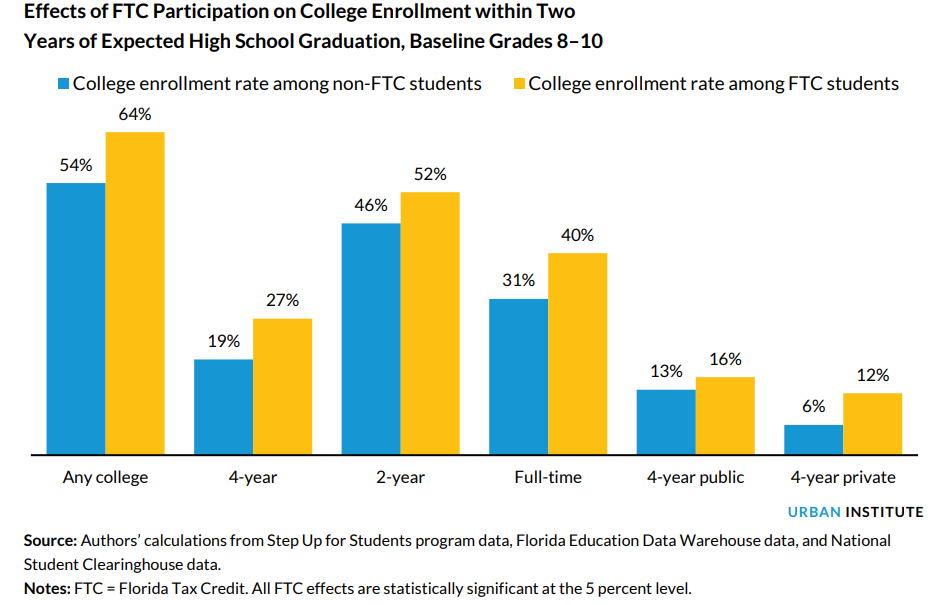Florida’s School Choice Efforts Boost College Prospects
The Center has led the quest for real school choice—the kind that includes private and religious schools—since its founding 28 years ago. Aside from the virtue argument (parents should have the right to choose a learning environment for their child), school choice is compelling educationally because it works. The latest example can be found in Florida’s Tax Credit (FTC) scholarship program, which annually gives private school scholarships to more than 100,000 low-income students.
The Urban Institute recently released new data on the scholarship program, linking this type of K-12 school choice to college success. The report finds that FTC recipients are “more likely than similar nonparticipants to enroll in both two-year and four-year colleges, including both public and private nonprofit four-year colleges” and are more likely to earn a bachelor’s degree.
For example, students who received an FTC scholarship in eighth through 10th grade had a 64 percent college enrollment rate in either two-year or four-year institutions, compared to 54 percent for non-FTC students. Four-year private college enrollment had double the rate of FTC students than non-FTC students.

The data set of students—FTC students and non-FTC students—included 89,302 individuals with similar baseline characteristics such as gender, race or ethnicity, nativity, language spoken at home, disability status, free lunch participation, age, and standardized baseline test scores.
Because of Florida’s scholarship program, FTC students can access a brave new world of educational achievement and excellence. Support for vouchers across the country continues steadily at a level twice that of the opposition. The 2018 Schooling in America survey by EdChoice found nearly two-thirds (64 percent) of respondents support school vouchers compared to one out of three (30 percent) who oppose them.
Private school scholarships became the doorway low-income and minority Florida students needed to improve their educational prospects. The positive impacts of this program can be replicated in other states by creating education policies that include private and religious school choice.